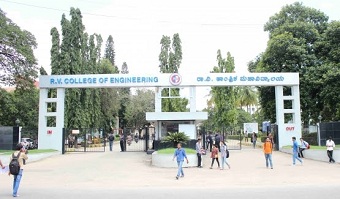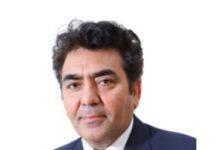RV College of Engineering, Bengaluru yesterday took a pioneering step in streamlining the entire process of enhancing and unravelling the multiple facets of CCTV technology with the launch of Centre for CCTV Research in its campus.
The event that was held physically at the RV College campus, as well as virtually had the presence of some of the notable names in video surveillance technology including Dr Tinku Acharya, Fellow IEEE and Founder and MD of Videonetics Technology, Mr Gautam Goradia, Founder of Com-Sur, the world’s only video surveillance footage auditing software, Mr T Shankar, Consultant, Indian Institute of Science, Bangalore Domain Experts, Digital Image Processing and video surveillance, and Mr. Sanjay Sahay, IPS (Retd), the former ADGP of Karnataka, and a public speaker. All these experts in their domain will form a part of leaders who will guide the Centre for CCTV Research.
Dr KN Subramanya, Principal, RV College of Engineering said that the effort was to educate people on what kind of CCTv installation is needed for what sector. He said there would be specialised courses where the faculty would try and make the students understand CCTV technology. Giving a brief overview, Dr Subramanya said that the Centre would develop further as they opened more and more opportunities for the students.
Dr MK Panduranga Shetty, President Rashtriya Sikshana Samiti Trust, who was the chief guest at the launch recalled how the electronics industry had developed over the years. Speaking out of his life’s experience of 87 years, Dr Shetty said that the Centre would ensure that more research happens in the field of surveillance and the video technology is properly understood by all.
Mr Sanjay Sahay, Mentor for the Centre said that the CCTV sector needed a lot of work in order for the end users to realise its full potential and get optimum value. There was a need for an integrated approach in surveillance and its application. He said that the idea of having such well known experts on board for the Centre who would be invaluable for their inputs in ensuring that the right information and knowledge is imparted to the students. Dr Ramakanth, Head of the Centre and HOD in the Department of Computer Science & Technology in RVCE detailed how so many people had contributed in setting up the centre. He informed that the centre was open for everyone since CCTV knowledge was useful for all and they were keen that everyone benefited with what the Centre had to offer.
Mr T Shankar, said that the intention behind the Centre was to make sure that everyone understood what video surveillance was all about since it was still a field with too many dark spots. The Centre, he said, would make an effort to educate students that CCTV was not just a camera, but a much deeper subject. “Understanding video surveillance was a complex task, we are making efforts to have the help of the best in the field to impart this knowledge“ he said.
Mr Gautam Goradia quoted a Motorola report that says that there were going to be 45 billion CCTVs in the world. “But unless we can understand and analyse what the footage they generate, they are useless. A tool thus is needed to audit the footage and show what the people monitoring the footage are looking for” he said. He said that it was important to turn CCTV into a preventive security tool rather than something that is to be probed after the incident. He said that tonnes of data needed to be stored smartly, and his company’s expertise in the field was on offer to the Centre to enhance the education of people who wanted to learn what CCTV technology was.
The final speaker of the day, often also called the doyen in the field of surveillance, Dr Tinku Acharya was strongly of the opinion that video technology and related software needed to be the kind that suited local demography. “ This Centre definitely needs to carry out further research on providing local technology because the technology that was created in the other countries will have problems performing in the environment of Kolkata or New Delhi. Even the software needs to be customised” he said. Dr Acharya said that it was important to have trained eyes in assessing footage. “Video management Systems are the heart of every surveillance system so it is important to have dynamic bandwidth management. Here too we need a major indegenous touch in the processing technology” he said.
The Centre for CCTV Research is not-for-profit, but promises to bring expertise from the best sources to educate the students, calling itself an integrated research facility to bridge the gap in knowledge, practise, protocols, testing, experimenting, training and certification in video surveillance. The multi-stakeholder Research facility promises to unravel the deep secrets of video technology, something that is much needed in the industry.








